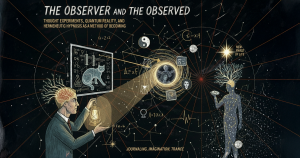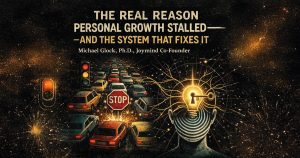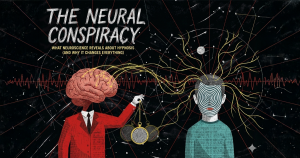Introduction
Aging is a natural part of life, yet some individuals seem to possess a timeless beauty that defies their chronological age. Depth psychological research suggests that certain behaviors, mindsets, and lifestyle choices significantly influence how we age and perceive ourselves (Levy & Myers, 2004). Joymind’s hypnotherapy offers a unique and effective modality to cultivate these ageless qualities by tapping into the subconscious mind to promote lasting positive changes.
In this article, we will examine the psychological factors contributing to youthful aging and discuss how Joymind’s hypnotherapy can help individuals embody these characteristics, leading to enhanced well-being and a more youthful appearance.
The Psychology of Youthful Aging
Several psychological factors play crucial roles in how gracefully we age. Understanding these elements provides a foundation for utilizing hypnotherapy to promote ageless qualities.
-
Positive Mindset and Optimism
Maintaining a positive outlook on life is linked to better health outcomes and longevity. Optimism can reduce stress levels and improve immune function, which are vital for slowing the aging process (Carver et al., 2010). A positive mindset influences physiological processes, decreasing the impact of stress hormones that can accelerate aging.
-
Effective Stress Management
Chronic stress has been shown to contribute to cellular aging and the development of age-related diseases. Effective stress management techniques can mitigate these effects, leading to a healthier, more youthful body (Epel et al., 2004).
-
Healthy Self-Perception
How individuals perceive themselves significantly impacts their aging process. A positive self-image and high self-esteem are associated with better mental and physical health, which can manifest in a more youthful appearance (Levy & Myers, 2004).
-
Active Lifestyle and Engagement
Staying physically active and socially engaged promotes longevity and vitality. Regular exercise and social interactions improve cardiovascular health, cognitive function, and overall well-being.
-
Mind-Body Connection
The interplay between mental and physical states affects aging. Practices that enhance mind-body awareness lead to healthier behaviors and reduced signs of aging.
How Joymind’s Hypnotherapy Cultivates Ageless Qualities
Joymind’s hypnotherapy programs leverage the power of the subconscious mind to facilitate behavioral and psychological changes that promote youthful aging. By addressing the key psychological factors, Joymind helps individuals unlock their potential for timeless beauty.
-
Enhancing a Positive Mindset
Joymind’s hypnotherapy sessions are designed to instill positive thinking patterns by accessing deep-seated beliefs in the subconscious mind. Through guided imagery and positive affirmations, clients can adopt a more optimistic outlook on life.
Research Insight: Studies have shown that hypnotherapy can increase positive mood states and reduce symptoms of depression, contributing to a more positive mindset (Alladin & Alibhai, 2007).
-
Stress Reduction and Relaxation
Hypnotherapy induces a state of deep relaxation, reducing physiological markers of stress such as cortisol levels and blood pressure. Joymind’s techniques help clients develop effective stress management strategies, mitigating the harmful effects of chronic stress on aging.
Research Insight: Hypnotherapy has been found to significantly reduce stress and anxiety levels, promoting overall well-being (Hammond, 2010).
-
Improving Self-Perception and Self-Esteem
By reprogramming negative self-beliefs, Joymind’s hypnotherapy enhances self-esteem and promotes a healthier self-image. Clients learn to appreciate their unique qualities, which reflects in their confidence and appearance.
Research Insight: Hypnotherapy has been effective in improving body image and self-esteem, leading to increased confidence and satisfaction (Chamine, 2018).
-
Promoting Healthy Lifestyle Choices
Joymind’s programs reinforce motivation and commitment to healthy behaviors such as regular exercise, balanced nutrition, and adequate sleep—all crucial for maintaining a youthful appearance. Hypnotherapy helps clients overcome subconscious barriers to these positive habits.
Research Insight: Hypnotherapy has been shown to aid in weight management and encourage healthier food choices by enhancing motivation (Kirsch, 1996).
-
Strengthening the Mind-Body Connection
Enhancing mind-body awareness is a cornerstone of Joymind’s approach. Hypnotherapy sessions help clients become more attuned to their physical and emotional needs, leading to better self-care practices and reduced signs of aging.
Practical Applications of Joymind’s Hypnotherapy for Ageless Living
-
Personalized Hypnotherapy Programs
Joymind offers tailored hypnotherapy sessions that address individual needs and goals. By focusing on specific areas such as stress reduction or confidence building, the therapy maximizes effectiveness and fosters sustainable change.
-
Accessible Self-Hypnosis Techniques
Clients are taught self-hypnosis techniques, empowering them to reinforce positive suggestions regularly. Practices like progressive muscle relaxation and visualization can be integrated into daily routines.
-
Integration with Holistic Wellness Practices
Joymind’s hypnotherapy can be combined with mindfulness, meditation, and cognitive-behavioral strategies to create a comprehensive approach to youthful aging. This integration addresses multiple facets of well-being.
-
Supportive Community and Resources
By providing access to a community of like-minded individuals and ongoing support, Joymind enhances motivation and commitment to positive lifestyle changes.
Ethical Considerations and Professionalism
Joymind adheres to strict ethical guidelines to ensure clients receive safe and effective hypnotherapy:
- Qualified Practitioners: All hypnotherapists are certified professionals with extensive training.
- Informed Consent: Clients are fully informed about the process and what to expect.
- Confidentiality: Personal information and session details are kept confidential.
- Evidence-Based Practices: Techniques used are supported by scientific research.
Conclusion
Joymind’s hypnotherapy offers a powerful tool for cultivating the depth psychological behaviors and mindsets associated with youthful aging. By enhancing a positive outlook, reducing stress, improving self-perception, promoting healthy lifestyle choices, and strengthening the mind-body connection, clients can experience profound changes in their well-being and appearance.
Embracing hypnotherapy as part of a holistic approach to aging empowers individuals to take proactive steps toward a healthier, more vibrant self. With the support of Joymind’s expert practitioners and evidence-based programs, unlocking timeless beauty becomes an attainable goal.
References
Alladin, A., & Alibhai, A. (2007). Cognitive hypnotherapy for depression: An empirical investigation. International Journal of Clinical and Experimental Hypnosis, 55(2), 147-166. https://www.tandfonline.com/doi/abs/10.1080/00207140601177897
Carver, C. S., Scheier, M. F., & Segerstrom, S. C. (2010). Optimism. Clinical Psychology Review, 30(7), 879-889. https://doi.org/10.1016/j.cpr.2010.01.006
Chamine, I., Atchley, R., & Oken, B. S. (2018). Hypnosis Intervention Effects on Sleep Outcomes: A Systematic Review. Journal of clinical sleep medicine : JCSM : official publication of the American Academy of Sleep Medicine, 14(2), 271–283. https://pmc.ncbi.nlm.nih.gov/articles/PMC5786848/
Epel, E. S., Blackburn, E. H., Lin, J., et al. (2004). Accelerated telomere shortening in response to life stress. Proceedings of the National Academy of Sciences, 101(49), 17312-17315. https://www.pnas.org/doi/full/10.1073/pnas.0407162101
Hammond, D. C. (2010). Hypnosis in the treatment of anxiety- and stress-related disorders. Expert Review of Neurotherapeutics, 10(2), 263-273. https://www.tandfonline.com/doi/full/10.1586/ern.09.140
Kirsch, I. (1996). Hypnotic enhancement of cognitive-behavioral weight loss treatments—Another meta-reanalysis. Journal of Consulting and Clinical Psychology, 64(3), 517-519. https://psycnet.apa.org/doiLanding?doi=10.1037%2F0022-006X.64.3.517
Levy, B. R., & Myers, L. M. (2004). Preventive health behaviors influenced by self-perceptions of aging. Preventive Medicine, 39(3), 625-629. https://www.sciencedirect.com/science/article/abs/pii/S009174350400115X?via%3Dihub














